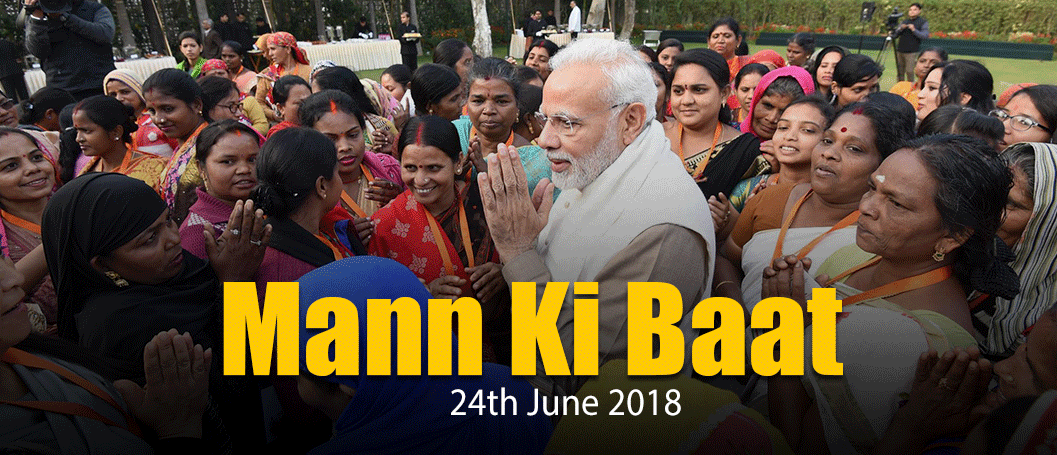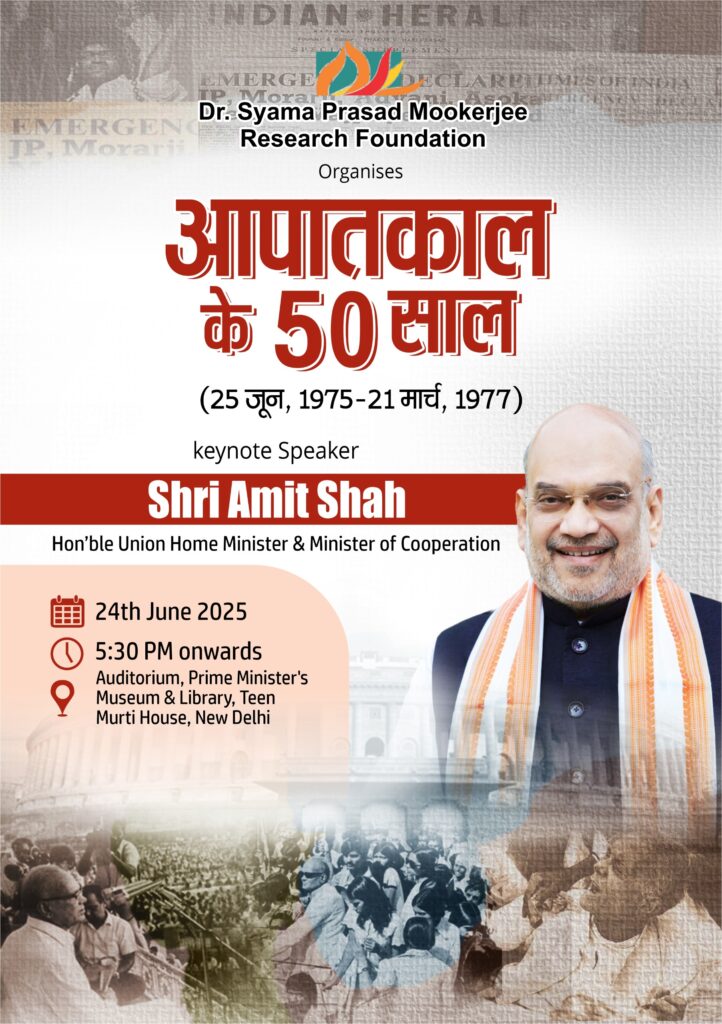My dear countrymen, this 21st of June, the fourth Yoga Day presented the rarest of sights. The whole world appeared as one entity. In the European Parliament in Brussels, at the UN headquarters in New York, on Japanese naval warships, there were sights of people performing yoga.
It is a matter of great pride for a hundred & twenty five crore people to witness members of our armed forces perform yoga on land, sea & sky.
My dear countrymen, many of you have urged me on My gov and Narendra Modi app to mention Doctor’s Day, the 1st of July. You are absolutely right. We think of doctors only during times of distress. But this is a day when the nation celebrates the achievements of our doctors and expresses gratitude for their spirit of service and commitment towards society.
You know, yesterday june 23, was the death anniversary of Dr. Shyama Prasad Mukherjee. Dr. Shyama Prasad Mukherjee was associated with many fields, but the areas which were closest to his heart were education, administration and parliamentary affairs, very few people would know that he was the youngest vice-chancellor of the University of Calcutta at merely 33 years of age.
Very few people would also be knowing that in 1937, on the invitation of Dr. Shyama Prasad Mukherjee, Gurudev Rabindranath Tagore addressed the convocation in Kolkata University in Bangla. This was the first time under British rule that the convocation in Kolkata University had been addressed to in Bangla.
From 1947 to 1950, Dr. Shyama Prasad Mukherjee was the first Industries minister of India and, in a sense, helaid a strong foundation for India’s industrial development, he had prepared a solid base, it was he who had prepared a stout platform. The first industrial policy of Independent India, which came in 1948, was stamped with his ideas and vision. Dr. Mukherjee’s dream was for India to be industrially self-reliant, competent and prosperous in every sphere.
He had wanted India to develop heavy industries and also pay full attention to MSME, handloom, textiles and cottage industry. For the proper development of cottage and small industries with finance availability and organizational setup- All India Handicrafts Board, All India Handloom Board and Khadi & Village Industries Board were established between 1948 and 1950.
There was also a special emphasis by Dr. Mukherjee on indigenization of India’s defence production, in the establishment of four most successful mega projects- Chittaranjan locomotive works factory, Hindustan aircraft factory, Sindri fertilizer factory and Damodar Valley Corporation and other river valley projects, Dr. Shyama Prasad Mukherjee contributed significantly. He was very passionate about the development of West Bengal. It was the result of his understanding, prudence and activism that a part of Bengal could be saved and it is still a part of India.
For Dr. Shyama Prasad Mukherjee, the most important thing was the integrity and unity of India – and for this, at the young age of 52, he also sacrificed his life. Come! Let us forever remember Dr. Shyama Prasad Mukherjee’s message of unity imbued with the spirit of goodwill and brotherhood and remain proactive with all our might for the progress of India.
On one hand, farmers have a major role in the entire chain from cultivation till the marketing of crops, whereas on the other hand, to make certain the farmers’ participation in reaping profits is an attempt to guarantee their right.
A separate seed bank has been created to make good agricultural strains available for reaping a bumper harvest. Women have also been added in this activity and they supervise the work of this seed-bank. I congratulate these young people for this innovative experiment and I am happy that these young professionals, technocrats and others associated with the world of engineering, got out of their comfort zone to make a connect with the farmer, the village, fields and barns.
In the GST scheme,information technology has replaced the inspector. Everything from return to refund is done through online information technology. The check post has become extinct after the arrival of the GST scheme and the movement of goods has become faster, which not only saves time but is also accruing benefits in the areaof logistics. GST is probably be the biggest tax reform in the world.
(The views expressed are the author's own and do not necessarily reflect the position of the organisation)


